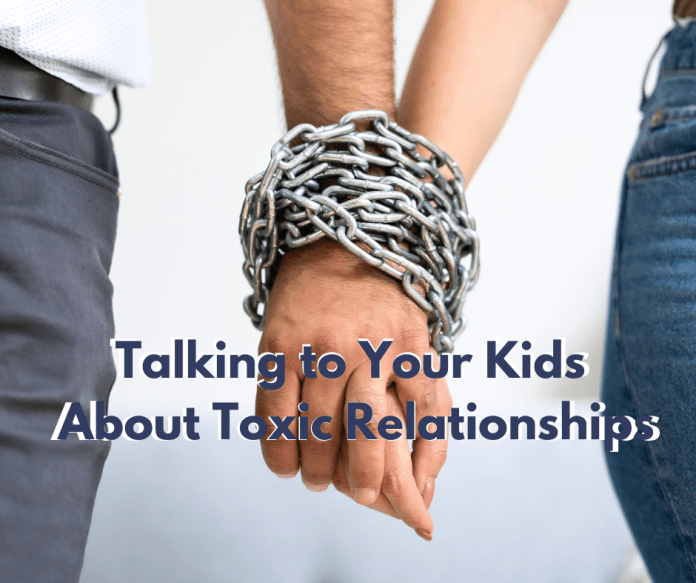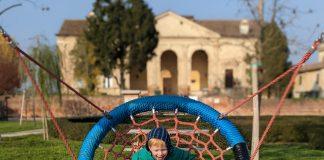Last year I sat in a classroom surrounded by high school students who wanted to make a difference in their school. As directors with Love Missions Global, my friend and I began speaking to these future world-changers about sex trafficking and the importance of online safety. That’s when one of the students stopped us. “That’s important,” she said, “but what we need is for someone to teach us how to navigate toxic relationships.”
What is a Toxic Relationship?
Flip the TV to any talk show and you’ll hear all the buzz about toxic relationships. It’s a trending term that describes a social situation that has been around since the beginning of time. According to Dr. Elizabeth Scott, a toxic relationship is “one that makes you feel unsupported, misunderstood, demeaned, or attacked. A relationship is toxic when your well-being is threatened in some way– emotionally, psychologically, and even physically. On a basic level, any relationship that makes you feel worse rather than better can become toxic over time.” If we’re honest, most of us have been involved in one whether it was with a romantic partner, a parent, a friend, or a co-worker.
Why Do I Need to Talk to My Kids About This?
If you have a middle school or high school student, your child is already talking about toxic relationships. They may not use the exact term, but they know who is in a bad relationship, who has an over-bearing boyfriend, whose bestie is talking behind her back, and on and on. As parents, it’s easy to blow it off as petty drama, but if we listen, we might find a great opportunity to impart some wisdom on a subject they’re actually interested in learning about. For once, as parents, we have an opportunity to have a conversation with our kids that doesn’t start with, “This is why XYZ is bad for you.” Instead, we can teach our kids how to recognize toxic traits and how to get out of relationships that are hurtful.
But, is it really that important? Are there any real reasons that we need to have these conversations? Well, according to DoSomething.org:
-Aproximately 1.5 million high school students in the US admit to being physically abused by their romantic partner.
-Teens abused by their significant others often suffer further consequences such as alcoholism, eating disorders, depression, violent behavior, promiscuity, and thoughts of suicide.
-1 in 3 young people will be in an abusive or otherwise toxic relationship.
-In the US, 1 out of every 4 high school girls have been physically or sexually assaulted.
-72& of 13 and 14-year-olds are “dating.”
-Only 1 out of 3 teens in an abusive relationship tell someone else about the abuse.
-Girls between the ages of 16 and 24 are three times more likely to be abused by an intimate partner.
Are those enough reasons?
And don’t think for a moment that our sons are not victimized by toxic relationships, as well. Girls may not swing a fist as often as boys (and trust me, plenty of girls do) but emotional manipulation is abusive, too.
What Do I Need to Tell My Kids?
When I speak with parents about human trafficking and toxic relationships, I always remind them that they need to be the kind of parent their child trusts. If you freak out over the little things, they will never trust you with the big things. So, start training your brain now to RESPOND to your kids instead of REACTING to them. If they tell you something that disturbs, frustrates, or even enrages you, take a deep breath. Think about what the end result is that you want from this conversation, and then decide on a response that will help you get to that end result.
Being a safe person for your child now will open of doors of opportunities with them as they grow. If they are facing a bad grade, they’re dating an abusive guy, or they’ve had a few drinks at a party, who do you want them turning to- you or their friends? Be the safe person. I promise you, it will be worth it.
As a safe person, talking to your kids about toxic relationships should be an ongoing conversation. You don’t necessarily have to sit down and go through a powerpoint (although that’s what I do at schools, youth groups, and other gatherings). But you can find little opportunities to talk openly and maturely with them in your daily life. If you’re watching TV together, talk about the characters and the choices they’re making. Ask your child what he or she would do in a similar situation.
Ask about their friends at school. Ask about their friends’ dating relationships and what they think about the way certain people interact. Talk openly about your own relationships (past and/or present) and the lessons you’ve learned. Be vulnerable with them and they will be vulnerable with you.
Do you have young kids? Start reminding them now that they are priceless and that nobody has the right to demean them. Teach them to know their worth, no matter what others say. When kids say mean things to them, talk about how it makes them feel and how to navigate the situation in a healthy way. It’s easier to just tell them to ignore it, but by doing so, we could be setting them up for future harm. Instead, let’s take the time to talk with our kids about what bothers them at a young age so we can give them the tools they need to fight their problems when they’re older.
What are the Warning Signs of a Toxic Relationship?
Maybe you have a child that you fear is involved in a negative relationship with a dating partner, a friend, or even another family member. What are the signs you should watch out for?
-Change. This is the big one. Look for changes in their behavior, their clothes, their friends, their activites, their school performance, etc. Big and sudden changes are often indicitive of any number of negative situations in a young person’s life.
-Isolation. When a friend, partner, or relative begins isolating a person, this is usually a sign of control .
-Fear. If your child shows signs of fear relating to another peson, you need to get involved. This may look like fear of being late for a date, fear of someone reading their texts, fear of making their partner angry, fear of making someone else jealous, etc.
-Jealousy or Anger from the other person.
How Do I Help My Child if They Are in a Toxic Relationship?
If you fear that your child is involved in a toxic relationship, help them find a way out. Listen carefully. Take them seriously. And don’t be afraid to step in. Your child may resist, but you could be saving their life. Talk with school counselors, your doctor, local police, or anyone else who might be able to help you navigate a difficult situation.
Toxic relationships affect children and young people in the same ways they affect adults, only our children have not yet been given the tools and experience to know how to handle them. Don’t wait until it’s too late. If at anytime, you or your child are in immediate danger, call 911. Need an advocate to help you navigate a violent relationship? Call the Domestic Abuse Hotline at 800-799-SAFE (7233).











